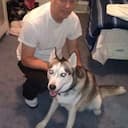Origins and Temperament
The Miniature Pinscher, often referred to as the "King of the Toys," has a storied past steeped in regality. Contrary to popular belief, this breed is not simply a miniaturized Doberman but a distinct type with German origins dating back several centuries. Miniature Pinschers are spirited and assertive, with a penchant for independence and spirited play. Their high level of intelligence and energy means they often demand engaging activities, which should be a consideration during their travels. Dignified yet daring, the Min Pin, as they are affectionately known, may require extra attention to ensure their royal temperament is properly managed in transit.
Size and Physical Needs
Miniature Pinschers typically weigh between 8 to 12 pounds and stand 10 to 12.5 inches tall at the shoulder. Their compact, muscular build and short coat require minimal space but an environment that's kept at a comfortable temperature. Their exercise needs are considerable for their size; thus, they need space to move about to satisfy their innate curiosity. When transporting Miniature Pinschers, it's essential to make room for some physical activity to cater to their spirited nature.
Common Health Considerations
Miniature Pinschers are generally healthy but can be prone to certain conditions like patellar luxation, heart issues, and obesity. It's vital to carry updated health documentation on travel day to quickly address any emergencies that may arise. Preventative measures may include a well-padded carrier to support their joints and careful monitoring of food intake.
















